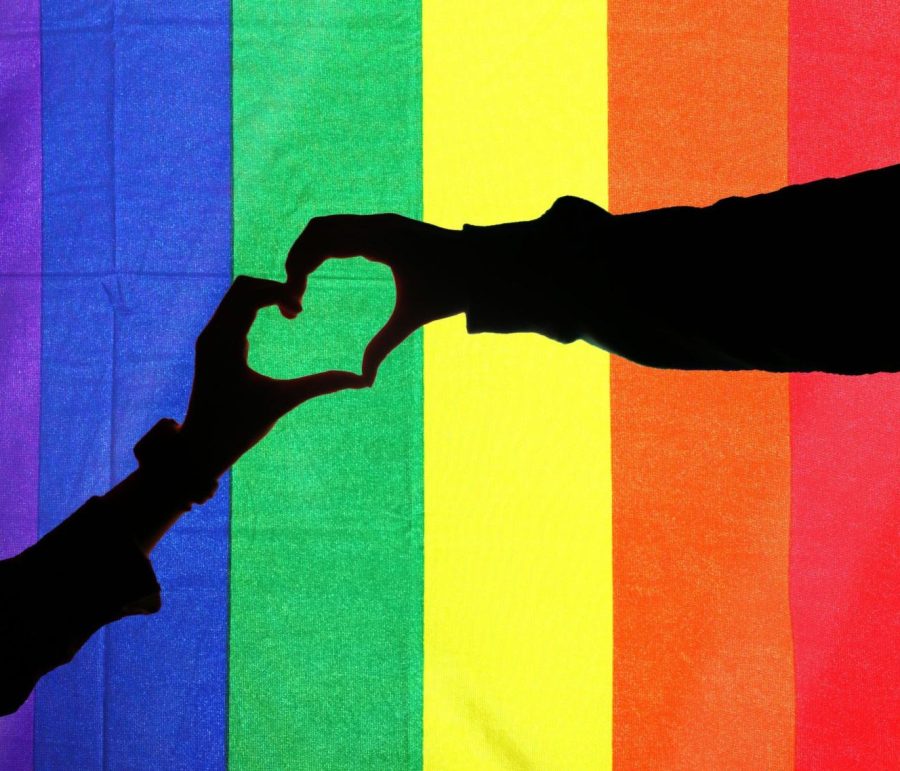Despite policies aimed at inclusiveness, LGBTQ students still report harrassment
“I just want student to know to not give a crap about what people are saying,” a sophomore who wished to stay anonymous said. “You have to be very brace and I feel like if you don’t have what it takes to stand up to people giving you dirty looks, then it’s not worth it. I have been hiding in the dark for too long and I’m ready to be out to this high school.”
“Tranny!”
“It!”
These are the words hurled at freshman transgender male Cas Wunder by a group of eight students as he headed into White Pines Middle School for a band event last year. They yelled slurs, called him names and threatened physical harassment.
Wunder is not alone.
Although transgender individuals have seen significant gains in tolerance and visibility in recent years, harassment remains a constant presence. Even at GHHS, despite consistent efforts by school leadership and many teachers and student groups to improve treatment, it’s still an issue.
“Of course I’ve dealt with homophobia,” junior Terri Carroll said. “It’s just a regular occurrence.”
Many members of the LGBTQ community have similar experiences.
Freshman transgender male Jasper Richardson struggles with some of the same issues. He came out in August 2020 but has since struggled with feelings of acceptance and support from his peers.
Further, he’s had issues with family members disrespecting him as well.
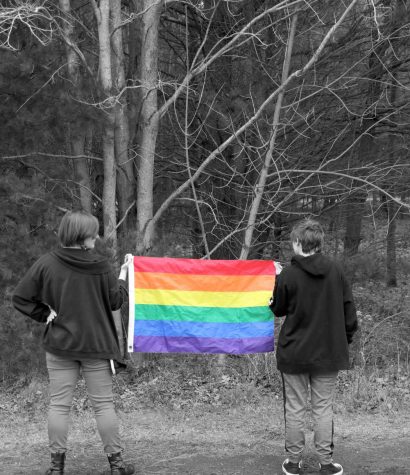
Several individuals in Richardson’s family refuse to use his preferred pronouns.
“It doesn’t make me happy, obviously it wouldn’t,” Richardson said. “But if they can’t manage to respect me then I’ll have to cut them off. It obviously isn’t as easy as it sounds, but they’re unsupportive in a lot of ways.”
Unfortunately, tragic stories like these are more common than you might think.
In a study published by the American Journal of Preventive Medicine, researchers concluded that gender-minority students experience a significantly higher prevalence of mental health symptoms than cisgender students.
“Compared with 45% of cisgender students, 78% of gender-minority students met the criteria for one or more mental health outcomes,” the journal wrote. “Gender-minority status was associated with 4.3 times higher odds of having at least 1 mental health problem.”
Historically, individuals who identify as a member of the LGBTQ community have experienced amplified mental health struggles when compared to the population on the whole. This difference has become more stark as the community grows.
“Depression and anxiety are astronomically higher in kids on the LGBTQ spectrum and suicide rates are way, way higher, especially for trans kids,” GHHS social worker Laurel Hotchkiss said.
In recent years, general knowledge and acceptance have widened to include members of the LGBTQ community within society. This has created space for those individuals to feel accepted, hence, why we’ve seen the community grow so rapidly.
However, these issues often go untreated and, over time, become far more harmful because of bullying.
“They’re afraid if they make a big deal about [the bullying] then it’s going to get worse,” Hotchkiss said. “So a lot of kids don’t say anything, which is why their depression is so much worse and their anxiety is so much worse.”
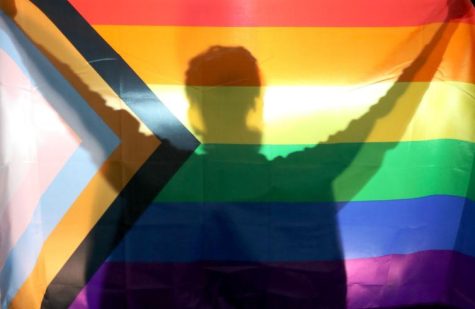
Completely ignoring these issues can be detrimental. But as many of us know in our hearts, simply having someone that listens goes a long way.
“If you just have one person that accepts you for who you are, your chances of making it are way better,” Hotchkiss said.
In response, Grand Haven administrators, in collaboration with school social workers and counselors, have made efforts to create a more inclusive environment within school.
They’ve made large strides, but there is still much to be accomplished. One of those strides has been to create safe environments for students on the LGBTQ spectrum to connect with each other and foster strong relationships.
For many, the Gay-Straight Alliance Club (GSA) provides that safe space.
“I have a lot of kids that come from a family where they can’t tell their parents what the club is they’re going to,” GSA advisor Katy Walters said. “But here at least they feel like they have people that are the same [as them].”
Many students that attend these meetings show up to socialize with others that have similar daily struggles and experiences.
“[We’re] birds of a feather,” a confident, well-spoken member said. “Usually it’s just easier to socialize with people that understand how you feel.”
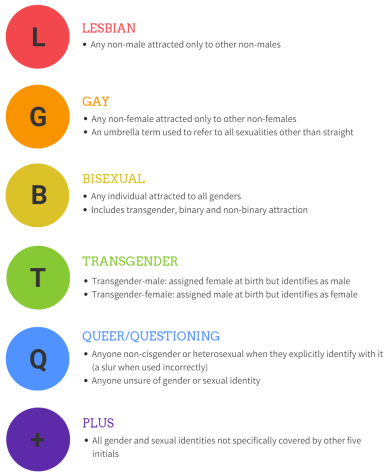 Junior club leader Terri Carroll identifies as non-binary and feels the same way. They have been attending meetings since their freshman year.
Junior club leader Terri Carroll identifies as non-binary and feels the same way. They have been attending meetings since their freshman year.
“I wanted to go because I knew my identity by the time I was pretty young and I felt welcome there,” Carroll said.
According to Carroll, GSA has made them a better leader and person, one who now prides themself on educating those around them whenever the opportunity presents itself. They feel a sense of responsibility to make sure peers that are interested in better understanding the LGBTQ community can do so.
This doesn’t make them immune from attacks though. On the contrary, Carroll believes being more open with their sexuality attracts more attention and criticism from others.
Despite having experienced immense amounts of bitterness and blatant discrimination, Carroll and others are hopeful they will eventually be able to live without this targeted hatred.
It may take baby steps, but the eradication of homophobia has to start somewhere. For Wunder, that involves humans having more open minds.
“We need to acknowledge the fact that people are people,” Wunder said. “We have to treat them like people or else we’re going to get nowhere.”

Editor In Chief and senior, Camille Berko, is thrilled to contribute to The Bucs’ Blade for one final year. She joined as a sophomore and hopes to help...
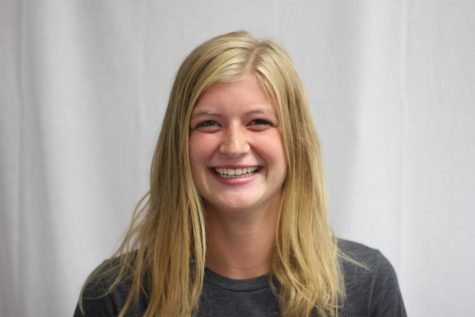
Senior Grace Montgomery is excited for her third year on The Bucs’ Blade staff as Editor In Chief. She hopes to share her perspective with her peers...

